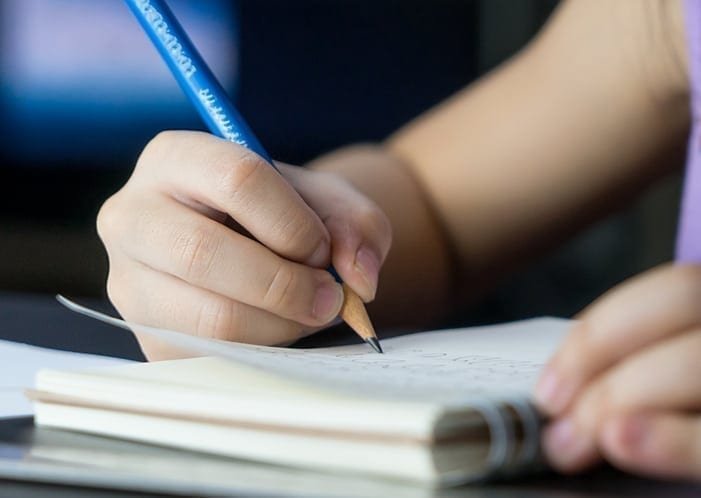Plastic, the ocean, Emmeline Pankhurst, Donald Trump, Brexit and Grenfell Tower are just some of the people and subjects that influence British children’s creativity and use of language, says a report published this month by Oxford University Press (OUP).
A significant increase in the use of the word plastic shows the influence of David Attenborough’s Blue Planet II, which highlighted the damaging effect plastic pollution is having on marine life.
Kids’ passion for environment
Following OUP’s analysis of the 134,790 short stories submitted to the 2018 BBC Radio 2 Chris Evans’ Breakfast Show’s 500 Words competition, British children have once again shown themselves to be fabulously inventive, funny and socially astute.
Plastic is the Oxford Children’s Word of the Year because of its significant increase in use in 500 Words (a total rise of more than 100% on the 2017 competition), the awareness and passion children demonstrated for environmental issues and the creative solutions to combat them that children invented in their stories.
This demonstrated the huge impact the final episode of David Attenborough’s Blue Planet II (screened on BBC1 in December 2017) had on the nation’s children.
‘Plastic is a fantastic Word of the Year! It really shows just how incredibly engaged with and how much the young people in Britain today care about the world around them. The OUP’s 500 Words analysis is always fascinating and so insightful about the creative ways children use language.’
CHRIS EVANS
BBC Radio 2 presenter
Descriptive imagery
Children use plastic in their stories in an emotive way to convey their understanding of the damage pollution is causing to marine life, drawing on their creativity and imagination to deliver powerful descriptive imagery in stories.
A seven-year-old-boy wrote, ‘Sea animals are dying because of you and your plastic! Nets get caught around dolphins’ necks. Plastic used for bottles gets tangled around sea turtle shells…’ in his story Save The Planet.
A 10-year-old boy wrote, ‘An empty plastic bottle they had carelessly discarded bobbed up and down at the water’s edge. The pull of the tide gradually lured it further and further out to sea with each rise and swell of the waves. Yet another unwelcome plastic alien invader in the beautiful big blue sea that one less whale now calls home.’ (The Big Blue).
Titles of the children’s stories submitted include The Plastic Shore, The Mermaid’s Plastic Mission and The Evil Mr Plastic.
Inventive solutions to plastic
Children are also taking matters into their own hands to come up with inventive solutions to the plastic problem. A ‘Reverse-o-matic Pollutinator Ray Gun’ for ‘zonking all the polluting machines around the world’ featured in The Bookworm (boy, aged 13); a ‘Fantastic-sewage-sooperpooper-suckerupper’ to ‘stop sewage going into the sea so people could swim in it without it being horrible’ appeared in Professor Igotit and the Fantastic-sewage-sooperpooper-suckerupper (boy, aged five) and ‘The three plastic-eteers’, ‘a team fighting against plastic rubbish’ appeared in The Three Plastic-eteers (girl, aged eight).
Some stories are even told from the point of view of the plastic containers: ‘Reaching the surface I found it filled with my kind. Empty bottles bobbed on the surface like rubber ducks, bags of different sizes and colours floating like jelly fish, killing and collecting helpless sea life. A blanket of plastic suffocating the ocean. None of us belong here.’ (Misplaced, girl aged eight).
Correspondingly, use of the terms recycle and recycling have each also increased by more than 100%, as have packaging, pollution, plastic bottle, plastic bag and plastic waste.
Biodegradable and permeable entered the stories for the first time and the word ocean, and many of its real or imagined inhabitants (whale, dolphin, turtle, shark, penguin, octopus, and of course, mermaid) also saw marked rises.
The phrase litter picking appears for the very first time, with phrases such as, ‘After watching recent events on the news about plastic ruining the oceans, she had organised a beach litter picking event with her friends.’ (Mermaid SOS! girl, aged 11).
 Play Video about This Rock Might Just Save The World
Play Video about This Rock Might Just Save The World Play Video about Play 2 hours of rock
Play Video about Play 2 hours of rock Play Video about Play 2 hours of brook
Play Video about Play 2 hours of brook Play Video about Play 2 hours of sheep
Play Video about Play 2 hours of sheep











































